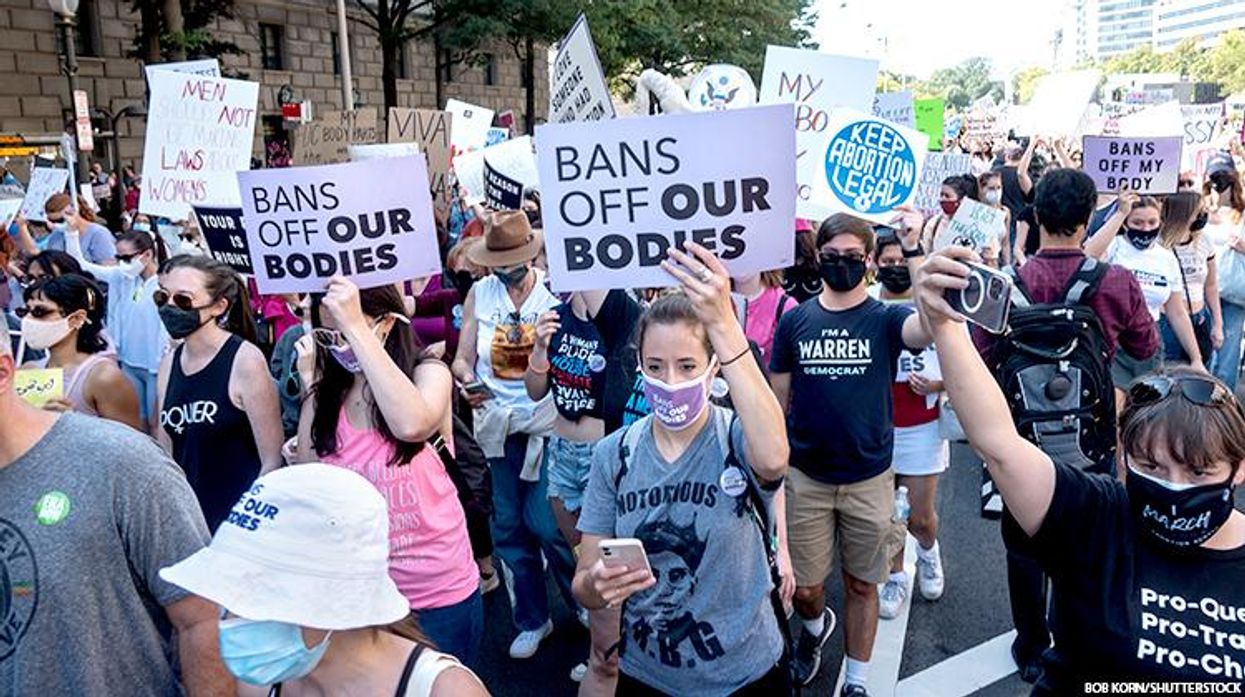With the midterm elections quickly approaching, abortion access is on the minds of Democrats and Republicans alike. After the Supreme Court's decision to overturn Roe v. Wade, the case guaranteeing the right to abortion in all fifty states, a handful of key states have left the issue in the hands of the voters.
If you live in Kentucky, Vermont, Montana, California or Michigan, abortion will be on your ballot in one form or another come November. Here's what you need to know about what you're voting on:
Kentucky
The Kentucky GOP has introduced Amendment 2, which will enshrine in the state constitution that Kentucky does not "secure or protect a right" to abortion or abortion-related funding.
Kentucky has currently implemented a "trigger law" until the midterm elections that bans abortion in any stage of pregnancy after six weeks. According to ANSIRH at University of California San Francisco, one in three women do not know they are pregnant at six weeks.
The question on the ballot will directly read: "Are you in favor of amending the Constitution of Kentucky by creating a new Section of the Constitution to be numbered Section 26A to state as follows: To protect human life, nothing in this Constitution shall be construed to secure or protect a right to abortion or require the funding of abortion?"
The state director for Planned Parenthood Alliance Advocates, Tamarra Wieder, said rejecting the amendment will help abortion rights activists "continue to fight back" against the state's existing laws.
Vermont
Vermont's Article 22 will approve or deny a state amendment that would protect "every person's right to make their own reproductive decisions," according to supporters. It would protect access to both abortion and birth control.
The amendment would read: "That an individual's right to personal reproductive autonomy is central to the liberty and dignity to determine one's own life course and shall not be denied or infringed unless justified by a compelling State interest achieved by the least restrictive means." A vote "yes" would pass it.
While abortion would remain legal in the state even if the proposal doesn't pass, campaign manager of the Vermont for Reproductive Liberty Ballot Committee, Sam Donnelly, told CNN that passing the amendment is necessary for protecting abortion rights in the state. He stated,
"It would mean that abortion access has been codified in the state constitution, and really the most important part of that is that it's protected long-term, and it means that access is going to be there, no matter what our politicians do."
Montana
Montana has a particularly harsh legislative referendum titled as the "Born-Alive Infant Protection Act," a law that would criminalize health care providers who perform abortions.
The state currently allows abortions until "the ability of a fetus to live outside the mother's womb," with exceptions for life-threatening pregnancies. LR-131 would designate a fetus as a legal person entitled to medical treatment "at any stage of development."
Health care providers in violation would be considered guilty of a felony, and would face a $50,000 fine alongside up to 20 years in prison. They would also be required to report any "failure to comply with the requirements" to law enforcement.
A vote "no" would reject the amendment and protect abortion access for the time being.
California
As in Vermont's case, abortion would remain protected under state law even if California's Proposition 1 is rejected, but passing it would solidify in the state constitution access to abortion and contraceptives, as well as patients' right to privacy.
Head of Planned Parenthood Affiliates of California, Jodi Hicks, explained that "no matter what the future legislature looks like, what the future governor looks like, that people in California have a constitutional protection that explicitly ensures the state won't interfere with their right to reproductive freedom."
The California Supreme Court recently ruled that the state constitution's right to medical privacy includes the right to have an abortion.
A vote "yes" would amend the Constitution to read: "The state shall not deny or interfere with an individual's reproductive freedom in their most intimate decisions, which includes their fundamental right to choose to have an abortion and their fundamental right to choose or refuse contraceptives."
Michigan
Activists in Michigan are pushing for a new constitutional amendment to make it onto the midterm ballot that would solidify the right to abortion in the state, blocking a near century-old ban from taking effect again.
The Michigan Supreme Court will rule on whether or not to allow the Reproductive Freedom for All amendment to come to vote in November by September 9. The court will likely rule in favor, as a Michigan Bureau of Elections staff report recommend they approve the petition advocating for the amendment, as it had beyond the required amount of signatures.
According to the amendment's 100-word summary, the law would not prevent the state from regulating abortion after a certain stage of fetal development, but required exceptions in cases where a patient's life or health is in jeopardy. It would also prevent law enforcement from prosecuting individuals who have abortions, or those who assist them.
The amendment would solidify the "individual right to reproductive freedom, including right to make and carry out all decisions about pregnancy, such as prenatal care, childbirth, postpartum care, contraception, sterilization, abortion, miscarriage management, and infertility."



















































